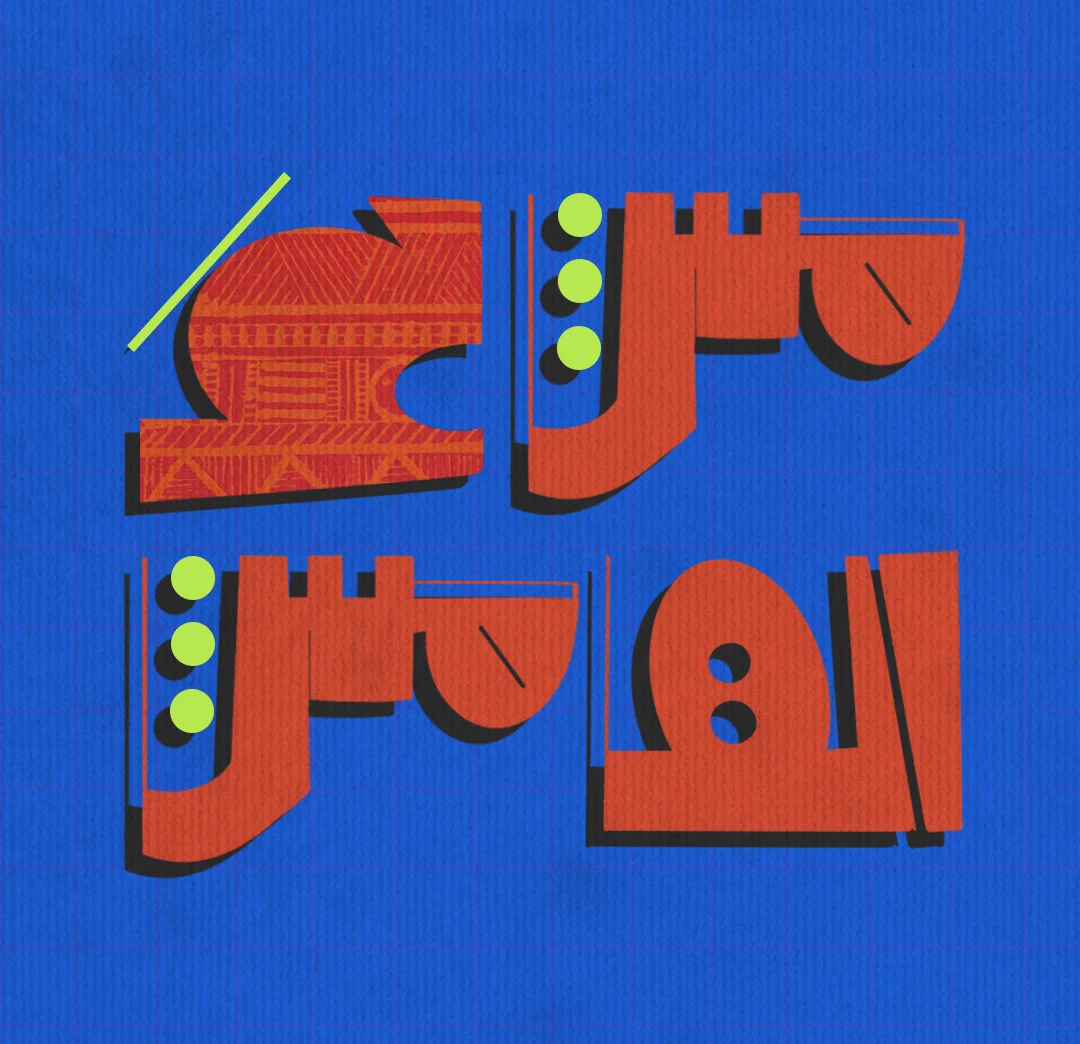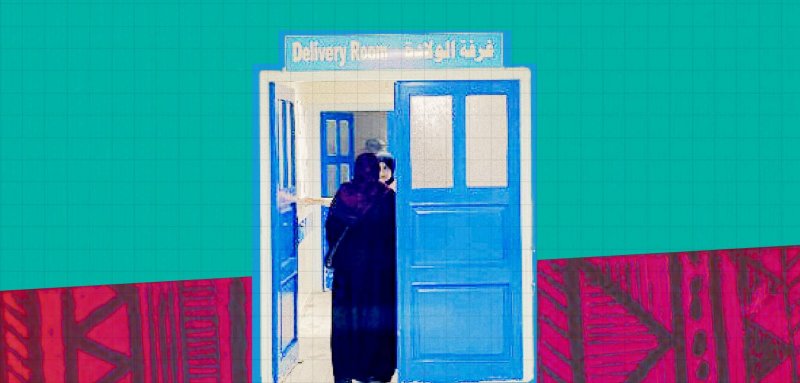
This report comes as part of the "Not on the Margins" project, which sheds light on freedoms, and sexual and reproductive health and rights in Lebanon
Last week, news of a Lebanese woman giving birth to triplets at the Martyr Mahmoud Al Hamshari Hospital of the Palestinian Red Crescent Society in Saida (southern Lebanon) circulated online. This came after the mother was transferred from the American University of Beirut Hospital to continue the follow-up on the pregnancy from the sixth month and to conduct the delivery there.
In an attempt to thank the State of Palestine in its own way for both its remarkable services and free health care during the arrival of its three new members, the Lebanese family named the newborns (a baby girl and two boys), “Dawla, Mahmoud, and Abbas” (the state of Mahmoud Abbas).
The news coincided with press reports in Lebanese media speaking of “a new, unprecedented phenomenon that has begun to spread and multiply” after it was “started by Lebanese women who are married to Palestinians”. The phenomenon involves women giving birth in hospitals in Palestinian refugee camps “because they are cheaper” despite the “potential security risks” of Lebanese women entering the camps, according to the reports.
In this report, Raseef22 seeks to verify the accuracy of these allegations and the impact of Lebanon's deepening economic crisis on access to sexual and reproductive health services in the country.
A new phenomenon?
While speaking to Raseef22, Dr. Manal Wehbe, from the Preventive Medicine Department of the Palestinian Red Crescent, refutes that Lebanese women heading to the centers and hospitals of the Palestinian Red Crescent for childbirth is a recent occurrence, saying that "since the branches of the Palestine Red Crescent Society (PRCS) opened throughout Lebanon, we have been receiving a range of medical cases like surgeries and deliveries, from all nationalities."
"If I get pregnant again, I will definitely give birth there".. More Lebanese women are giving birth in Palestinian refugee camps. Is it a "new phenomenon"? What are the temptations of this decision?
Male and female Lebanese citizens say they have visited, or are regularly visiting, Palestinian refugee camps in order to get access to health care, including pregnancy follow-ups, labor and delivery, and kidney dialysis.
Dr. Wehbe adds that there has been a noticeable increase in the percentage of Lebanese women who visit the Palestinian Red Crescent maternity centers and hospitals "due to the change in the economic situation that has affected all segments of society," explaining that they have been able to absorb this increase, deal with it, and provide the best service accordingly.
She goes on to stress that, "The treatment here is the same. Nothing has changed after the economic crisis. We are receiving all patients no matter their nationality, including Lebanese, Palestinians, Syrians, and others."
The same is confirmed by Dr. Imad Hallaq, media officer at the Palestine Red Crescent Society, "Yes, there has been an increase in the number of Lebanese male patients and female births in hospitals affiliated with the Palestinian Red Crescent due to the economic crisis that Lebanon is going through."
He also points out that this constitutes "an increase in pressure on hospitals. But it is not an obstacle to the association's mission of providing service to everyone in need without discrimination, nor does it affect the services we provide to Palestinian refugees in Lebanon."
As for why Lebanese women are giving birth in the hospitals of the Palestinian Red Crescent Society, Dr. Wehbe attributes two reasons, the first of which is "the availability of comprehensive medical services at an almost nominal cost”, while the second is “the very good service” they provide.
Dr. Hallaq confirms this, adding that it is "because the Palestine Red Crescent Society does not seek profit and one of its principles is to provide service to everyone in need without discrimination on the basis of religion, nationality, or race. What the association offers and provides through its humanitarian role stems from the suffering of the Palestinian people who understand the suffering and needs of any fellow human being, and we do not forget the proactive and generous nature of the Palestinian people, which are all principles the association’s values are based on."
There are no specific official figures for the number of Lebanese women giving birth in Palestinian camps, according to Dr. Hallaq, who indicates that there is a financial system in the association that determines the price of a childbirth or delivery, while social workers study the patient's economic and social situation, and determine the cost of the operation based on his/her capabilities.
Whereas Dr. Wehbe says that the cost of childbirth in the Palestinian Crescent Society, whether natural or C-section, ranges between 5 million and 16 million Lebanese pounds (between $90 and 296 US dollars at the current price of the Lebanese pound). It is worthy of note that some of the women we spoke to said they were charged costs that were even lower than the minimum indicated by Dr. Wehbe, which may be due to a reduction from the evaluations conducted by social workers at the Palestinian Crescent Society.
“Yes, there has been an increase in the number of Lebanese patients in hospitals affiliated with the Palestinian Red Crescent due to the economic crisis that #Lebanon is going through,” but the economic factor is not the only driver behind this increase
Wehbe denies that the health service is less expensive because it is of lower quality and stresses that health care in the Palestinian Crescent Society is "fully scientifically, materially, and technically prepared”. She says, “Our work here is humanitarian, we are neutral and we have no discrimination (between nationalities),” adding, "unless certain services that are limited to a certain category are provided."
The health care costs for pregnant women does not stop at childbirth, as there are monthly follow-ups, and regular tests and examinations, which we were told cost much less in Palestinian camps than in Lebanese hospitals. For example, "a regular visit to the gynecologist starts at one million Lebanese pounds," while a follow-up visit and monthly examination in the camp "does not exceed 150,000 Lebanese pounds (about 3 US dollars)," according to the Lebanese newspaper Al-Joumhouria.
Just because the service is cheaper?
"I had a natural delivery. My birth was easy. I was only worn out when the labor and contractions began, but I thank the nurses and doctors who stood by me and helped me. After it was over, they came back to check on me, examine me, and ask if I was in pain. But thank God everything was fine, and my son Noah was born in good health."
This is what Linda Khatib, a 23-year-old Lebanese woman from Tariq al-Jadideh, says about the birth of her first child, Noah, at Haifa Hospital in the Burj al-Barajneh refugee camp on January 5.
"The Palestine Red Crescent Society doesn't seek profit. One of its principles is to provide service to everyone in need without discrimination on the basis of religion, nationality or race, as the Palestinian people understand the suffering of any fellow human being”
While speaking, Khatib repeatedly praised the treatment and bedside manner of doctors and nursing staff, pointing out that she chose to give birth in the camp first because of the proximity of the hospital, second because "I could go there at any hour I wanted and they would admit me me at any time," while third was because of the appropriate cost – only three million Lebanese pounds (about $55 US dollars).
The young mother confirmed that many of her Lebanese friends went before her to give birth in the same hospital and encouraged her to take this step, which she says she will never hesitate to do again and encourage other Lebanese women to take. She adds, "I really liked the treatment at the Palestinian Crescent. If I get pregnant again, I will definitely give birth there. The treatment of the doctors and nurses is very good and I thank them. There was no discrimination when it came to the fact that I am from another nationality."
Years before Khatib, Lebanese Sama Ahmad (pseudonym) also decided to give birth to her three children at Haifa Hospital, primarily because it is close to her family and because her doctor incidentally performs deliveries at the hospital. Her last C-section a few months ago cost her 16 million Lebanese pounds.
Ahmad says the service is "good”, adding that "of course there is no racism or discrimination”, and "the important thing is that got out of the hospital healthy and safe.”
Three and a half years ago, Hanadi Shehadeh, 40, from the town of Saadnayel in the Bekaa Governorate, welcomed her baby at the Palestine Red Crescent Hospital. Before going there, she had asked several Lebanese hospitals in the Bekaa and neighboring areas, and found that her C-section would cost $700 US dollars.
She says, "In Lebanon's current situation, hospitals are like hell. My situation doesn’t allow me to give birth in hospitals here because my finances are in a very bad state. I went to al-Hilal Hospital and gave birth there, and the service was very, very good, amazing even.. and got out safe and sound.” Her delivery in the Palestinian Red Crescent hospital had only cost $250 US dollars.
Hanadi encourages any Lebanese woman to give birth in the hospitals affiliated with the Palestinian Red Crescent, saying, “God willing, I wish the best of luck to the Palestinian Red Crescent and all the hospitals affiliated with the Palestinians, because they really have compassion and mercy. I mean, they don't have any discrimination (on the basis of nationality), at all.”
She goes on to add, "If you go to the ministry (meaning the Lebanese Ministry of Health) and they find out that you want to give birth by means of the ministry (at the expense of the state), they will immediately tell you that there are no available beds. They instantly shut the door in your face and give you a thousand excuses and issues... When I went to al-Hilal Hospital, everything, thank God, went smooth and easy in all respects. I hadn’t expected this. They did not ask for money up front like Lebanon's hospitals, which say: ‘Pay money, and then you’ll give birth’. They make people die for the sake of money... (In al-Hilal), they admitted me and I gave birth, then I paid.”
Raseef22 tried to contact the Lebanese Ministry of Health and had not yet received a response by the time this report was published.
Raseef22 is a not for profit entity. Our focus is on quality journalism. Every contribution to the NasRaseef membership goes directly towards journalism production. We stand independent, not accepting corporate sponsorships, sponsored content or political funding.
Support our mission to keep Raseef22 available to all readers by clicking here!
Interested in writing with us? Check our pitch process here!



